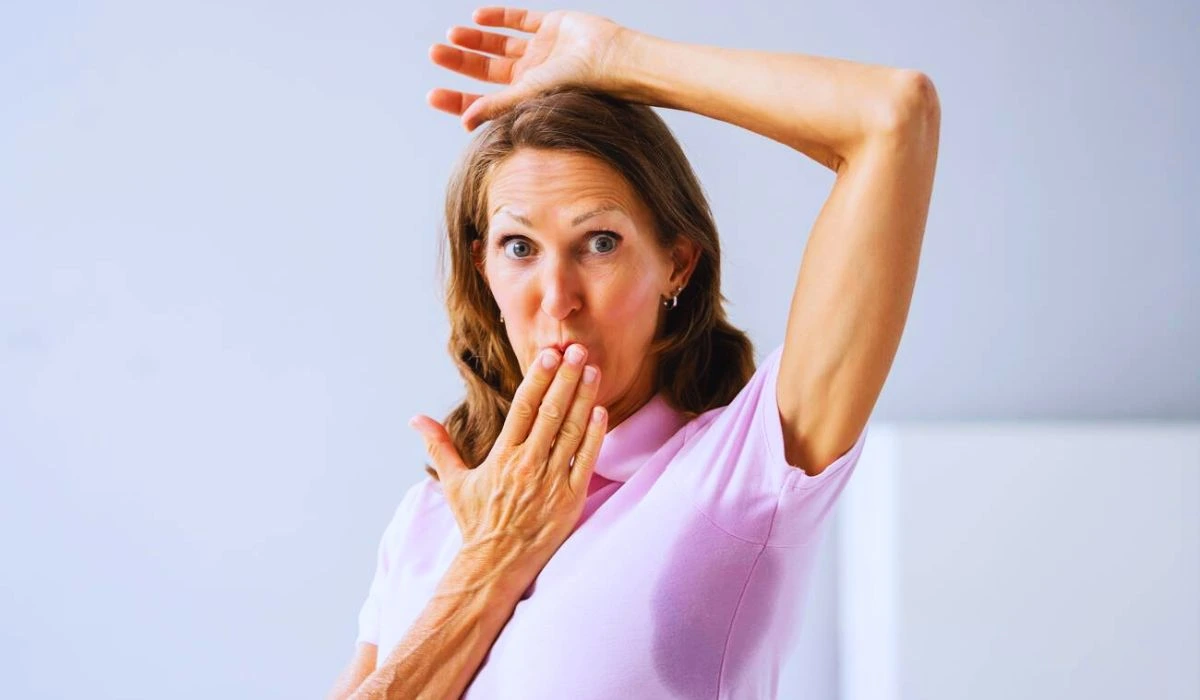Excessive sweating, also known as hyperhidrosis, is a common condition that affects millions of people worldwide. Characterized by sweating that goes beyond what is necessary to regulate body temperature, hyperhidrosis can have a significant impact on quality of life. Understanding the causes, symptoms, and treatment options for hyperhidrosis is important for managing this condition.
What Is Hyperhidrosis? What Causes It?
Hyperhidrosis occurs when the sweat glands are overactive and produce more sweat than is needed by the body. The excess sweating is not related to external factors like high temperatures but rather is caused by an overactive sympathetic nervous system.

The sympathetic nervous system is responsible for the body’s fight-or-flight response. In people with hyperhidrosis, this system is overactive and triggers the sweat glands to produce excess sweat even when the body does not need cooling.
The underlying cause of primary hyperhidrosis is unknown, but it is believed to have a genetic component. Secondary hyperhidrosis can be caused by various medical conditions, medications, or substance use. Some of the known causes include:
- Genetics – having a family history of excessive sweating
- Menopause
- Obesity
- Endocrine disorders like hyperthyroidism
- Neurological conditions
- Medications and drugs
- Withdrawal from alcohol, opioids, and other substances
What Are The Major Hyperhidrosis Symptoms?
Hyperhidrosis can affect different parts of the body, leading to different sets of symptoms:
- Excessive sweating of the hands (palmar hyperhidrosis) – sweaty hands, feeling a wet handshake, making paper or tools slippery
- Excessive sweating of the feet (plantar hyperhidrosis) – sweat-soaked socks, sweat marks on shoes, slippery feet
- Excessive sweating of the underarms (axillary hyperhidrosis) – visible sweat marks on clothing, smelling of body odor
- Excessive facial sweating – sweat dripping from the face and forehead, scalp sweat
In addition to excess sweat production, people with hyperhidrosis may also experience:
- Skin maceration – thin, white, wrinkled, pruney skin from prolonged wetness
- Skin infections – bacterial and fungal infections due to the moist environment
- Dehydration and heat exhaustion – from loss of fluids and salts through sweat
- Anxiety and social isolation – due to embarrassing sweat stains and body odor
The type and severity of symptoms can vary significantly from person to person. For some, hyperhidrosis symptoms may be mild and infrequent. However, for many, excessive sweating is severe, frequent, and disruptive to daily activities.
How To Treat Hyperhidrosis?
Several treatment options are available for managing hyperhidrosis:
- Antiperspirants – Over-the-counter clinical strength antiperspirants containing aluminum chloride can help block sweat glands. Prescription antiperspirants may also be used.
- Iontophoresis – Using electrical current to treat excess sweating of hands and feet. It helps block sweat glands. Multiple sessions are needed initially.
- Botox injections – Botox injections block the nerves that trigger sweat glands. It is effective for underarm, hand, and foot sweating.
- MiraDry – A device that uses electromagnetic energy to destroy underarm sweat glands. It requires 1-2 treatments.
- Anticholinergics – Oral medications that block neurotransmitter signals to sweat glands. Side effects include dry mouth and urinary retention.
- Surgery – Endoscopic thoracic sympathectomy involves surgical cutting of nerves that trigger sweating. Used in severe cases when other treatments fail.
- Home remedies – Natural remedies like sage tea, apple cider vinegar rinses, and cornstarch/baking soda can provide some relief for mild sweating.
- Lifestyle changes – Wearing moisture-wicking fabrics, and socks, using absorptive foot powder, and avoiding triggers like spicy foods can help manage symptoms.
Working closely with a dermatologist is recommended to determine the most effective treatment plan based on the severity of symptoms and parts of the body affected. Combining therapies often provides the best results.
Conclusion
In summary, hyperhidrosis is a condition marked by excessive, uncontrollable sweating beyond what’s necessary for thermoregulation. It is caused by overactivity of the sweat glands due to an overactive sympathetic nervous system. Symptoms depend on the location affected but can include sweaty hands, feet, underarms, face, and scalp.
Treatments aim to block sweat production and range from clinical strength antiperspirants to botox injections, medication, miraDry treatment, surgery, and home remedies. Addressing hyperhidrosis can significantly improve one’s quality of life and social confidence.
FAQs
A: Common triggers for hyperhidrosis include heat and humidity, stress and anxiety, low blood sugar, caffeine, spicy foods, alcohol, and certain medications. Underlying medical conditions can also trigger excessive sweating.
A: Primary hyperhidrosis often starts during childhood, adolescence, or early adulthood when the sweat glands become overactive. Secondary hyperhidrosis can occur at any age.
A: Yes, excessive sweating from areas like the underarms, feet, and groin can interact with bacteria on the skin and cause unpleasant body odor. Using antibacterial soaps, and aluminum chloride antiperspirants, and maintaining good hygiene can help reduce odor.
A: Severe, uncontrolled hyperhidrosis can have serious impacts on quality of life. However, it is not life-threatening. The most dangerous risk is dehydration and heat injury from excessive fluid loss. Most cases can be managed with topical treatments, botox, medication, or surgery.
A: Signs of hyperhidrosis include frequent, excessive sweating in specific areas even without triggers like heat. You may notice sweat dripping, soaking through clothes, and skin maceration. Talk to your doctor if it interferes with your daily life.

